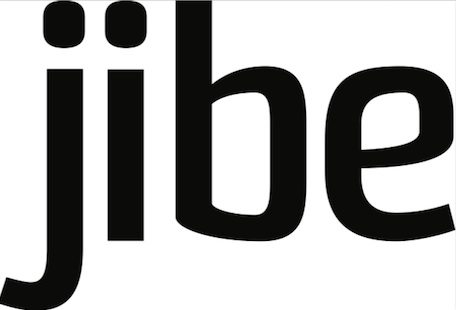Jibe Mobile is participating in the GSMA’s 360 Series in North America this week to showcase its cloud-based (RCS/joyn) deployments with Deutsche Telekom and Sprint.
I had the opportunity to speak with Amir Sarhangi, Jibe’s CEO, about the differentiation the company’s solution provides to operators and also his insights as to the difference between these two geographies, the United States and Europe, when it comes to messaging. Telecom isn’t the same the world over and it’s key to note how these differences drive different priorities in the deployment of infrastructure and new service offerings.
 Just to highlight Jibe’s solution before looking at the markets. It bills its offer as an end-to-end IP platform — including public cloud, private cloud, communications client, Rich Communication Services (RCS) hub and telco-web gateway — built for carriers to launch native experiences for mobile customers.
Just to highlight Jibe’s solution before looking at the markets. It bills its offer as an end-to-end IP platform — including public cloud, private cloud, communications client, Rich Communication Services (RCS) hub and telco-web gateway — built for carriers to launch native experiences for mobile customers.
So what does this actually mean and what is it so important? There are three key points that jump out in the company’s solution that make an operator’s life a lot easier.
- First is the RCS Hub. At the simplest level think of it as a ‘router’ (don’t take that term literally) that allows operators to connect once to the cloud and interconnect with everyone else they have interconnection agreements with via a private or public cloud.
- Second is the ability to offer native RCS functionality. Whether or not an operator has launched its own OTT services — messaging, video chat, stickers, etc. — it is now able to offer a white label or Jibe branded app on the handset that will enable cross-functional messaging applications to end users.
- Lastly, are the two cloud solutions. An operator can begin with a public cloud option or a private cloud option. For European customers, the solution is hosted in Germany in order to meet the requirement for local hosting of data utilized within the EU.
Why Jibe?
There are two main reasons for the differentiation in the Jibe solution. First is that it develops an iOS or Android client in-house and a hub to connect to the cloud. This only requires one connection point and minimizes the complexity of integration. Offering this end-to-end solution speeds time to market allowing operators to react more quickly to the threat of OTT alternatives.
Europe vs. the United States
In Europe the OTT challenge for messaging is much higher. There is heavy OTT usage with some countries approaching 100% WhatsApp penetration. This poses a big challenge to operators to not only differentiate their offers but provide options at a profitable price point that end users will purchase.
In the United States, the situation is much different. With only about 16% penetration for OTT messaging offers, the operators are focused more on VoLTE and spectrum efficiency challenges. Even if Americans don’t actually get an ‘all you can eat’ messaging service, most feel as though they do because the messaging usage included with the monthly service is so high compared to Europe.
Another issue for Europe is the requirement for many smaller carriers to be able to interoperate and provide a consistent experience to the end user. The Jibe RCS Hub development was driven by trying to solve this challenge for European operators. Connect once and work with everyone. Whereas the U.S. operators have fewer in-country requirements, they need to connect with the rest of the world.
The two solutions being demo’d at the event this week showcase these differences. Deutsche Telekom’s challenge was the ability to offer uniform services across multiple markets. How to address different languages, different branding, but offer a localized experience with consistent quality. Services have launched in Romania and Slovakia in only four months since the projects were initiated.
Sprint’s focus in working with Jibe was around the ability to offer video chatting and RCS services. Additionally, the demos show the two operators talking to each other.
Another interesting comment to note is around markets that have mobile as their first option for connecting online, such as many countries in the Middle East or Africa. The feeling from Jibe as that these regions will also be interested in offering the types of services they can help operators provide in these regions in the near future as their smartphone deployment grows.
Living in Europe and understanding the heavy reliance on OTT players I am really excited about these options. Not only do Europeans utilize OTT solutions more heavily then their American counterparts, we all have multiple apps for multiple purposes. Wouldn’t it be great to only have one that does everything? Viber, WhatsApp, FaceTime, etc. – are you listening?

